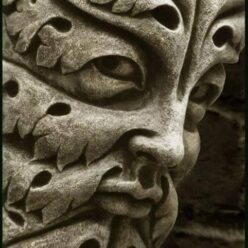Walking the trail is a many stranded thing.
Some sing as they walk, the cheerful filthy songs of the schoolyard, or pop hits, or hymns from various traditions. Some go alone, some in silence.
A few are carried. There are portions of the trail where a chair will go, but not everyone’s that lucky, to have someone to help. Babies and toddlers go in slings, all the time. Then, by tradition, they need feel no pressure, as adults, to walk the trail. It’s a strange combination of infant and adult baptism, as a Christian explained it to me. I never understood baptism except as the delight taken in overwriting the expulsion from water that marks the creation of a human, not-breathing to breathing. This water is more important than that water, it opens a gate to heaven.
I will take the trail, for it is life. There is water there, a dozen icy springs where you can replenish your bags, and you can collect the rain that falls in the grim half of the year when the sun hides and only comes out once in a while to pick through its reflection in puddles.
Old people go when they’re told they’ll die soon. Some get better; some are carried off feet first.
The guides and the search and rescue people are, for the most part, worthy of the trust we put in them. The rangers who care for the trail, and collect a share of the take from the trail and the park that sits at the southern end, are a quixotic, taciturn bunch.
I’ve been told they are mostly ex-military. One of them is the largest properly formed man I ever saw. I could not claim to have met him, for we never spoke. Walkers later say, ah, him, the huge one, but not one of us has an anecdote or a witticism. He was silent, and let his companion do what talking was needed. Some say he can’t speak, but I doubt that. I think he has found congenial work, which matches his desire not to speak.
I met only one who’d speak for any length of time, but I have walked the trail more than once, so I’ve had more conversations than most. This will be my sixth attempt. I broke an ankle the last time. I am choosing a more popular time of year now; I am taking a radio.
The attendants and rangers go up and down the trail as need calls. Walkers start in the south and go north, and we all come back by boat, sometimes gaily drinking on deck, sometimes grimly puking below. This is true whether we do a half trail and get off at Corso Bay, or get off at the traditional end point, Rashid Inlet.
There are a handful few who walk, and climb, and crawl, across Hell’s Head, the most northern tip of the Island; it’s an excruciating, narrow trail, so dangerous that there are portions guides will not work. There are much easier paths set back from the ocean, but the oceanside affords views and camping not matched anywhere else in the world, to match the agony of getting situated; during the solstice one feels as if one was ‘hanging in the sunset for an eternity before dark finally steals across the ocean’. Or so says the man asked to say it by a camping equipment company.
Many people refuse to walk the trail, even though in some ways it has become an unsubtle badge of, if not citizenship, then civic participation. We must have more in common than being human, apparently, to feel some kinship. If we choose to plant our commonality in an activity that those who feel a horror for nature, its fecund rot and indifference to human scale, will shun, we state what we’re about.
This is a strange world, and we’re trying to make it into home. The trail is beautiful and its vistas, lookouts, waterfalls, outcrops of jagged rock, caves and hot springs are a string of precious gems along a prosaic string of, in spots, difficult hiking.
The first steep incline is called the Grampskiller. My grandson told me not to die on it. I told him I wouldn’t dream of it. I go alone to think, to breathe, to plan, to grieve. I go to find something I lost, meet someone I miss, perhaps meet the being which has shadowed me since I first walked the trail.
